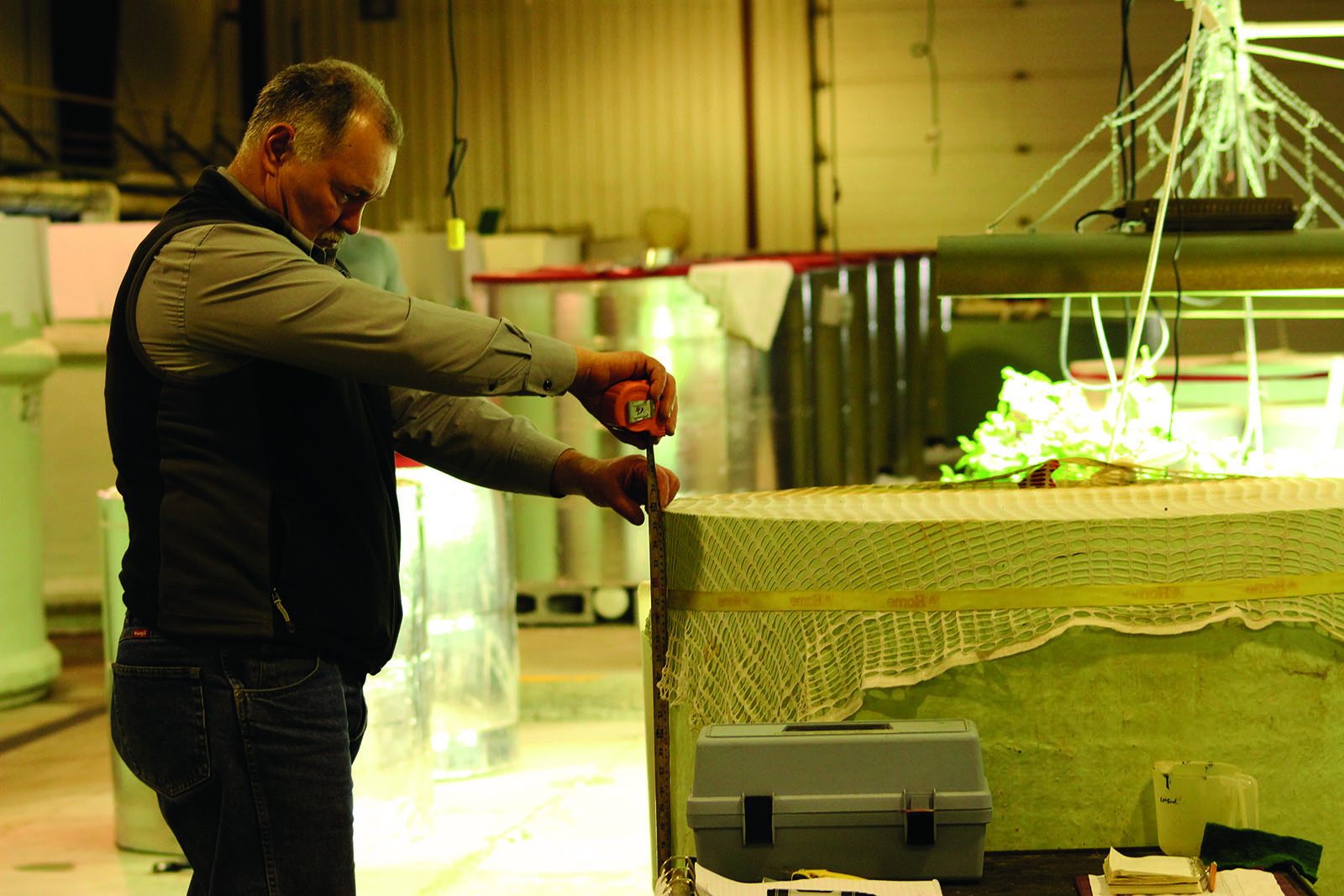A new research scientist at Lethbridge College is helping grow a project that could have a major impact on southern Alberta. Nick Savadov, Phd., is helping lead the Aquaculture Centre of Excellence (ACE) at the college. The Integrated Fish Plant System (IFPS) research they are conducting is at the forefront of food sustainability and production.
Savidov came to the college in September and brings with him a wealth of knowledge. He came from the Crop Diversification Centre in Brooks where he worked as the head of the greenhouse program since 2002. During this time Savidov had already started working with Lethbridge College. “I cannot say I am completely new to this college,” he said. “I collaborated with them a lot.” Savidov is enjoying being at the college and said it’s a very friendly and productive environment.
Earlier this year, Lethbridge College received a $2.1 million grant for its IFPS research. Savidov says it’s unique because it’s the largest grant in the world given to fund this area of aquaponics. “When this happened, the college became a leader and may become a world leader, in this very fast developing area of sustainable agricultural production,” he said.
Savidov says this research is important now because we cannot continue to produce food in the same wasteful way that we have done in the past. He explains that the reserves of fossil fuels are depleting and we currently use those raw materials (phosphate rock) to produce fertilizers. The IFPS helps provide a solution to this problem.
The IFPS eliminates the need for fossil fuels by creating a completely self-sustaining system using fish and plants. The fish produce waste, bacteria converts the waste into plant nutrients; plants absorb the nutrients then regenerate the water quality that goes back to the fish.
The IFPS allows food production with very minimal impact on the environment. Various vegetables and herbs have been grown using this system. Now the challenge is creating a marketable system for large-scale food production. Savidov says the research they are doing is to ensure that commercial growers will be successful. Savidov’s research team is considering factors like food safety, production efficiency and organic certification in their current project.
Savidov says farmers are now investing millions of dollars in this technology. Savidov’s goal with the project is to ensure these businesses don’t fail. The Current Prairie Fisherman Corporation in Nobleford, AB is the largest Tilapia fish producer in Western Canada. The greenhouse they are building will soon be attached to their fish facility. Once the project is completed, it will be the largest commercial aquaponics facility in Canada. “We will have a chance to produce food in the most sustainable manner ever,” said Savidov.
The college will be undergoing changes as well. The plans are to upgrade the existing greenhouse, not only for ACE, but also to accommodate the schools of agriculture, environmental sciences and culinary arts. A multi-faceted project is in the making, which will integrate production technology, culinary arts, economics and community engagement. “With this approach we cannot only solve problems related to production, but also focus on social and economic issues,” said Savidov.
The culinary department at the college is already using produce grown in the facility. Currently, four local food service establishments are evaluating product grown with the IFPS. Doug Overes, the culinary department program chair, has been closely involved in the process. “We compiled all of the surveys into a report and that’s being used to help the applied research department analyze whether the product was viable,” he said. Future plans are being discussed with the businesses to determine how they will move forward.
Savidov says the support he has received from everyone at the college has been outstanding. “They’re all very talented, passionate and committed people. I really enjoy working in this college environment, it’s fantastic,” he said.
Savidov’s colleagues enjoy working with him as well. John Derksen, the head of research for ACE said, “Nick’s full of excitement and always eager. He loves this stuff and you can tell. The passion comes through.”
For more information on ACE you can visit the lethbridgecollege.ca or drop into the applied research & innovation department.

Erik Bergen holds Tilapia, the fish that are used in the IFPS at the Lethbridge College aquaponics facility.


